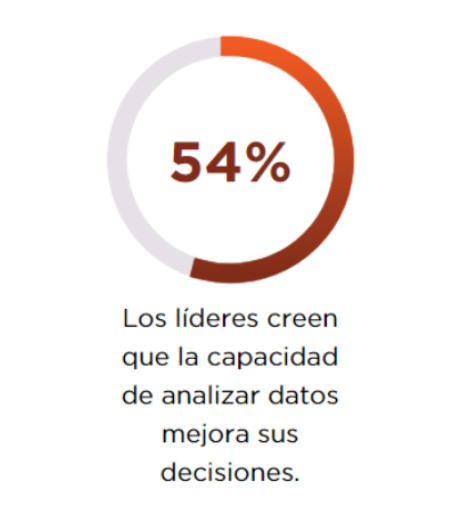Data management: A skill in great demand among high-level professionals
A society like the one we live in, full of information and data, constantly needs to be decoded, hence the importance of knowing how to manage data in
the professional environment, since this analysis saves organizations a lot of time and money.
Due to the aforementioned, among the skills with the most demand, today is data management, which allows professionals to decant the raw information received, process it, and convert it into useful and classified information, being able to use it strategically.
Better data analysis = Better organizational decisions.
Data is vital to making good organizational decisions. To measure a team, its performance, and its results, it is essential to have KPIs that allow analyzing results. Only in this way, with measurable objectives, is it possible to achieve an objective evaluation.
All departments of a company, corporation, or institution must establish the data that will govern their results.
Although Artificial Intelligence is currently capable of collecting data and even giving an interpretation of it, it is humans who will be able to give it a real interpretation, based on human resources, taking into account all the factors that can intervene in them. Hence, the importance of having professionals who know how to interpret the data and know what to do with it.
According to a study carried out by IBM, which highlights the importance of proper data management in companies, 62% of the companies surveyed reported that they are using Big Data and analytics to improve their decision-making, while 53% affirmed that They are using these technologies to improve their operational efficiency. Additionally, the study found that companies that have implemented an effective data strategy have higher financial performance and are more likely to be leaders in their market.
Why should today's professionals strengthen their data management skills?
Strengthening data management and analysis skills during your doctoral studies will allow you to stand out and have privileged positions for your contribution to organizations. Creating a data culture and developing data interpretation skills will make you make intelligent decisions, based on facts and with a controlled margin of error.
An article published on LinkedIn, on data management, indicates that:

54% of the leaders believe that the ability to analyze the data will improve their decisions
Good data management and interpretation allow:
Productivity optimization.
Alignment between the different corporate sectors.
Generation of insights to know markets and creation of scenarios
Improvement in the decision-making process.
Many programs offer among their subjects those related to data analysis, no matter what your final program is, always being able to enrich your educational background with this type of subject will make you a much more appreciated and requested professional profile.